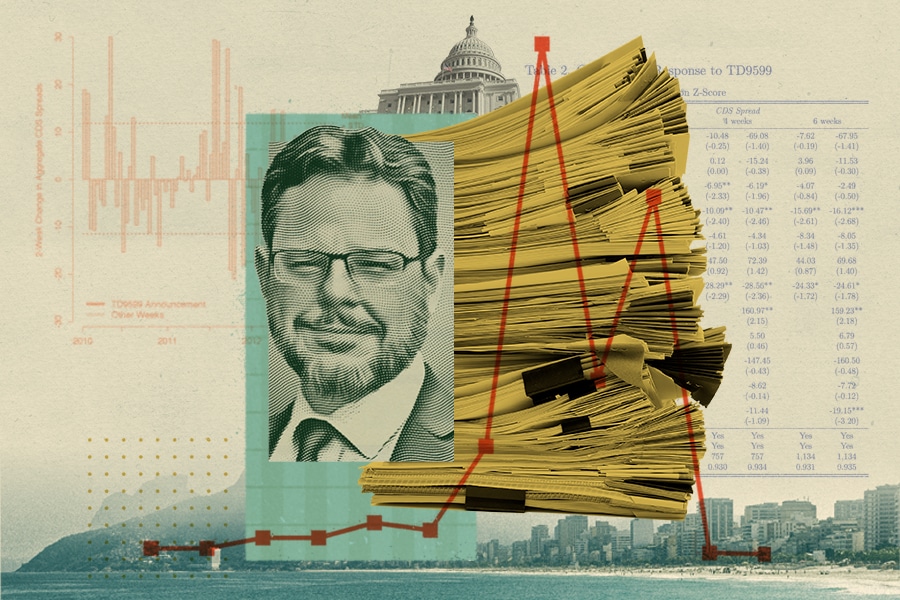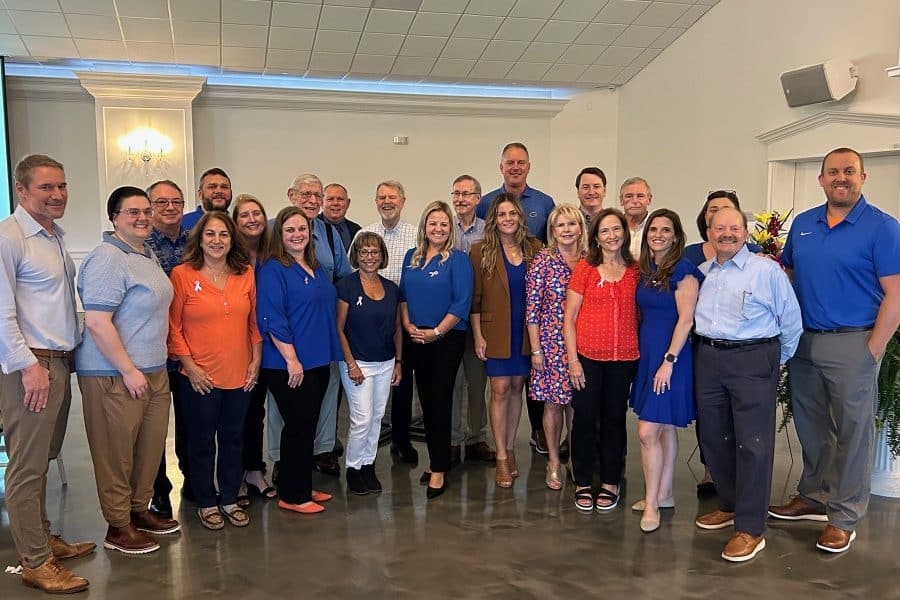
Murillo Campello is the standard of research
Murillo Campello’s preparation for academia started at a young age. Growing up in an inflationary economy in Rio de Janeiro, Brazil, during the mid 1980s, he learned earlier than most about interest rates and exchange rates. The more he learned, the more fascinated he was to learn more.
While watching his grandfather and great grandfather both work in academia as law professors, Campello got the bug to teach at an early age.
“I was always very studious and liked gaining knowledge,” Campello said. “I also knew I had a touch for teaching people.”
That touch has turned into a 25-year career as one of the most impactful finance professors and researchers in the world.
Campello has been an editor for seven different publications and quoted by more than 60 news outlets, including The Wall Street Journal, The New York Times, Reuters, Bloomberg, ABC News, Forbes, CNNMoney, Yahoo! Finance and USA Today. His work has been cited in policy speeches by Chairman of the Fed Board of Governors Ben Bernanke, Chairman of the New York Fed Kevin Marsh and President of the European Central Bank Jean-Claude Trichet. His research has also been mentioned in multiple U.S. Supreme Court cases and quoted by the European Economic Commission and the U.S. Northern California District Court.
All of his work has been done with one goal – find ways to optimize life for people and businesses.
“I don’t want to impress people by how smart I am – I want to impact policy making for companies and markets,” Campello said. “I like to do work that is applied and helps people. I’ve always had that in me. In finance, we can show how to create innovation and protect jobs, we can focus on paying taxes and human capital. Let’s invest in those areas and help companies do the same. Transmitting those ideas is what I love the most.”
While earning his master’s degree from Pontifical Catholic University in his hometown, Campello connected with an exchange program that had ties to the University of Illinois. He met a professor at Illinois and was invited to attend the university to earn his PhD.
From there, he served in professor roles at Arizona State University and Michigan State University before returning to University of Illinois – this time, as a professor. At each stop, he continued to actively publish research and work hard to establish himself.
“If you publish, the phone rings,” Campello said.
After 10 years at Illinois, the phone rang – and it was from one of the most prestigious universities in the world. Cornell University had an opening and wanted Campello to join their faculty.
“I learned a lot at Cornell,” he said. “There were a lot of smart people and students there. It really launched me to more of an international career and into that sphere. That was a great place for me to appreciate research. It left a mark on me.”
But the phone kept ringing. This time, it was the University of Florida. After 14 years at Cornell, Campello was immediately drawn to the likeminded faculty at Warrington.
“The group (at Warrington) has strong footings in the same areas as my research,” Campello said. “It can take a while to form new collaborations in a new role, but I already had those here because of the depth in faculty. There are more diversified areas of finance represented here and that was a big deal. I was able to bring my knowledge and best practices here. It was a personal challenge for me.”
The move freed up more time for Campello to spend on research, but he didn’t want to give up teaching completely. He still works closely with PhD students at Warrington and believes his contributions to PhD students has been the most gratifying part of his career. Campello has worked with almost 100 PhD students while teaching classes in Australia, Belgium, Brazil, France, Norway, Portugal and the United Kingdom.
His influence has also been felt on Capitol Hill. Campello’s research has been quoted multiple times by policymakers, but the first time it happened will always stick out to him. During the financial crisis, Campello was asked to clearly explain what a financial constraint is. He advised policymakers about what impedes companies from receiving funds and forces them to do things that ultimately hurt the economy.
“It was a thrill,” Campello said. “It was exciting but also humbling in a way to realize what I do is important and how to best communicate it to people who make the final decisions.”
As his opportunities grew, so did his influence. Campello has been an editor for seven different publications, including his current role as managing editor of Journal of Financial Intermediation, which he has held since 2013.
“What I love about being the editor is it makes you impartial and makes you focus on decisions that help lead the profession,” Campello said. “You’re telling people what matters now and in the future. Your decisions as an editor signal to the profession what matters. I love being trusted with that.”
Related stories
For the media
Looking for an expert or have an inquiry?
Submit your news
Contact us
Follow us on social
@ufwarrington | #BusinessGators


